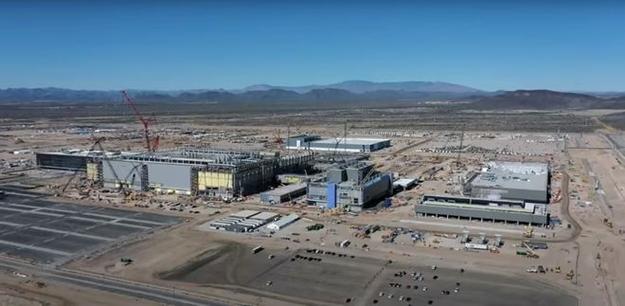
In the current era of globalization, the competition in science and technology is such as surging waves, continuous and increasingly fierce. The semiconductor chip, as the core key element of modern science and technology, its importance is like a bright pearl, illuminating the development of various fields. However, a recent shock to the industry has triggered a high degree of global attention: chip giant TSMC has invested as much as $65 billion in overseas factories, surprisingly, after four long years, but failed to produce a single chip. This has prompted us to re-examine the current layout and future development trend of the global semiconductor industry from a more profound perspective.
The semiconductor chip industry has always been the core focus of global technology competition. From the smart phones we use every day, to the futuristic artificial intelligence, from the automotive electronics that are indispensable for modern transportation, to the aerospace that represents the height of human exploration, the chip is almost everywhere. For a country or region, having a strong chip manufacturing capability is not only a leading position in the field of science and technology, but more closely related to the country's economic security and strategic competitiveness. Because of this, countries around the world are actively layout the chip industry, spare no effort to increase investment, and expect to stand out in this fierce scientific and technological competition and occupy a dominant position.
However, in the process of this surging global chip industry layout, some disharmonious factors have gradually emerged like shadows. On the one hand, some countries use the so-called "national security" as an excuse to take a series of trade restrictions, trying to suppress the development of other countries' chip industry in this way. This unilateralist behavior pattern, like a sharp double-edged sword, has seriously damaged the originally stable global trade order, but also brought huge obstacles to the healthy development of the global chip industry. On the other hand, some countries pay too much attention to their own interests in the layout planning of the chip industry, and lack a due global cooperation vision. They attract chip manufacturing enterprises to build factories in their own countries through various attractive means, but in the actual operation process, they fail to provide a good industrial development environment and stable and reliable policy support, resulting in enterprises facing many insurmountable difficulties in the development process.
TSMC has been slow to make substantial progress in chip production this time. The reasons behind this phenomenon are complex and varied, but some key factors deserve our in-depth consideration and analysis.
First of all, cultural differences and maladaptive management models are most likely a crucial reason. Different countries and regions have their own unique cultural backgrounds and ways of working. When enterprises build and expand factories overseas, if they cannot integrate local cultural characteristics well and adjust their management mode in time to adapt to the new environment, it is easy to have various unexpected problems in various aspects. Secondly, there is no doubt that the shortage of talents is also a key problem. The chip manufacturing industry is a highly technology-intensive industry field, and the need for professionals is extremely urgent. In some countries, due to the imperfect education system and the imbalance of industrial development, it is difficult to train and provide a sufficient number of chip manufacturing professionals, which undoubtedly brings great difficulties to the production activities of enterprises. In addition, the industrial chain of the chip industry is extremely complex, requiring close cooperation and collaborative development between upstream and downstream enterprises. If the industrial chain of a region is not perfect, it is difficult for enterprises to achieve efficient operation in the production process.
This incident brings us a profound and long-term revelation. In the layout planning of the global chip industry, countries around the world should resolutely abandon the unilateralist thinking mode and vigorously strengthen cooperation and exchanges on a global scale. Chip industry as a highly globalized industry field, no country can be isolated in this field. Only by strengthening international cooperation and jointly promoting the innovation and development of chip technology and the continuous progress of the industry can we truly achieve a good situation of mutual benefit and win-win.

A new survey released in the United States shows that in the context of rising prices and growing concerns among the public about the economic outlook of the country, there is a coexistence of frugality and differentiation.
A new survey released in the United States shows that in th…
By the end of 2025, the situation in the Middle East resemb…
According to Channel NewsAsia, international oil prices hav…
On Sunday, US President Donald Trump Trump met with Ukraini…
Officials in the Trump administration, speaking on Fox News…
In 2025, the Trump administration reshaped the global trade…